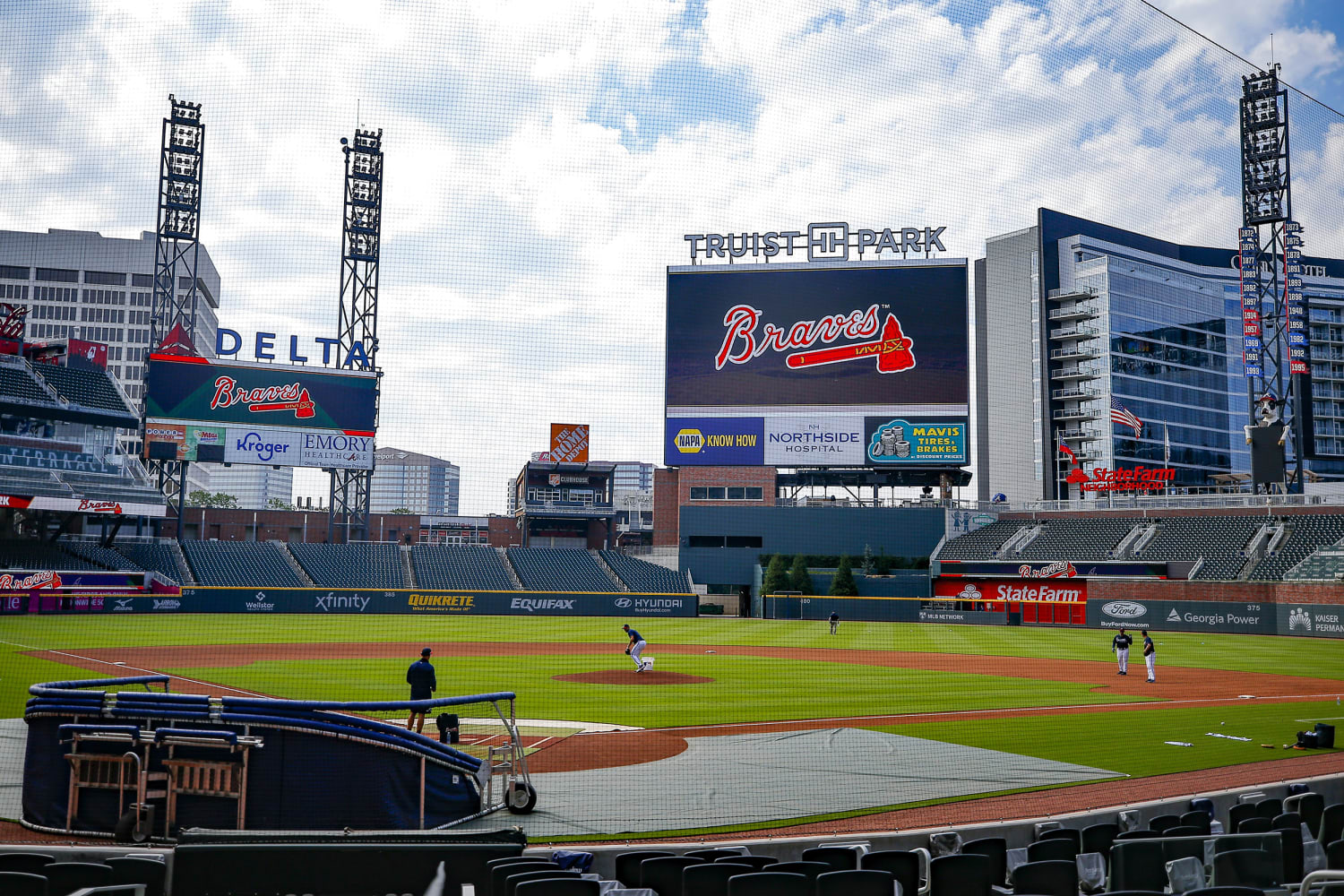WASHINGTON — A trio of Republican lawmakers outlined legislation Tuesday aimed at ending Major League Baseball’s antitrust exemption after the All-Star Game was moved out of Georgia in protest of that state’s new voting restrictions.
The legislative push from the three conservative senators — Ted Cruz of Texas, Mike Lee of Utah and Josh Hawley of Missouri — comes amid growing frustrations among Republicans over corporations and sports leagues embracing causes associated with progressives, such as protecting voting rights.
MLB relocated the Midsummer Classic from Truist Park, the Atlanta Braves home in Cobb County, Georgia, to Denver’s Coors Field due to recently enacted voting limits signed into law by Gov. Brian Kemp, a Republican.
“This past month, we have seen the rise of the woke corporation. We have seen the rise of big business enforcing a woke standard,” Cruz told reporters.
“That decision was harmful. It’s going to hurt baseball. But it also underscores that there’s no reason Major League Baseball should enjoy special subsidies — corporate welfare that no one else gets.”
He accused MLB of “acting to favor one party against the other.”
MLB’s action has further fueled Republican organization around cultural anxieties, a trend that was brought to the fore by former President Donald Trump and have continued, if not accelerated, in his wake.
It’s unclear how much traction their proposal will gain. Senate Minority Leader Mitch McConnell, R-Ky., recently criticized MLB for pulling the All-Star Game from Georgia, but he has not called for legislative action targeting the league.
Since 1922, pro baseball has enjoyed key exemptions from the Sherman Antitrust Act, which broadly bans industries from stifling competition.
“It’s important to remember that this exemption was created from whole cloth by the Supreme Court 99 years ago,” Lee said. “It was not put in place legislatively. It is a distinctively legislative decision.”
That Supreme Court ruling, authored by Justice Oliver Wendell Holmes Jr., has stood for nearly a century and the most practical impact today is MLB’s control over local markets, team relocation and ownership.
There have been no MLB relocations since the Montreal Expose left Quebec after the 2004 season to become the Washington Nationals.
By comparison, the National Football League has seen three teams relocate in recent years: The St. Louis-to-Los Angeles Rams; the San Diego-to-L.A. Chargers; and the Oakland-to-Las Vegas Raiders. Since the turn of this century in the National Basketball Association, the original Charlotte Hornets moved to New Orleans, the Vancouver Grizzlies migrated to Memphis, and the Seattle SuperSonics stormed into Oklahoma City.
“The (baseball) owners control who can join their club, the owners control who future owners can be,” said Broward County (Florida) Judge Louis H. Schiff, author of the textbook “Baseball and the Law.”
“Based upon all the past cases I’ve read and studied, the antitrust exemption is important for the way baseball is made today.”
MLB also enjoys a hammer lock on minor league baseball, controlling wages and location of teams. Lawmakers from across the spectrum have ripped MLB for gutting minor league baseball this year, perhaps to the antitrust exemption’s peril, according to Lisa Pike Masteralexis, who teaches sports law at University of Massachusetts Amherst.
“It might be a time we might say enough is enough with this antitrust exemption,” she told NBC News.
Still, despite the current dust-up, Masteralexis said she wasn’t sure how close MLB might be to losing this century-old business luxury.
“Congress people come out (from time to time) and say, `We’re going to take the exemption away’ and through whatever their lobby is, it just never seems to happen,” said Masteralexis, senior associate dean at UMass Amherst’s Isenberg School of Management.
Source: | This article originally belongs to Nbcnews.com












